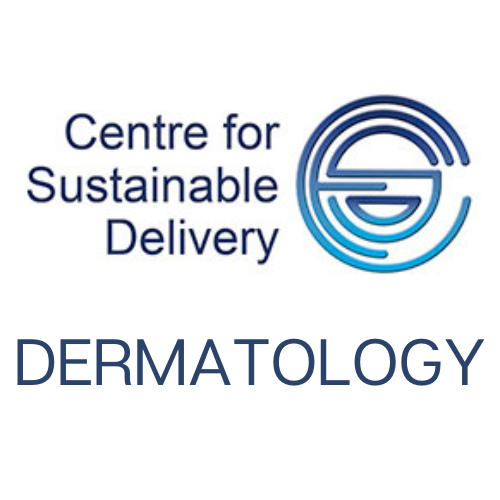Severity
Depends on proportions of physical appearance and psychological impact.
Mild: Localised segmental Vitiligo. Non segmental Vitiligo sparing face and hands. Minimal psychological impact.
- In absence of definitive treatment, for minimal disease with low psychological impact patients may not seek further treatment.
- Recommend a high-factor (SPF50+) sunscreen with protection against ultraviolet A and B.
- Check TSH and thyroid antibodies.
- For adults with limited areas on trunk and limbs a potent topical steroid may be applied once daily (off licence) for up to 2 months
- Not suitable for face and flexures.
- Topical calcineurin inhibitor may be useful such as Tacrolimus 0.1% applied BD for face and flexures
- Avoid use of sunbeds.
- Provide contact details for Changing Faces for advice on skin camouflage and the Vitiligo Society for further information and support.
Moderate: More widespread. Acrofacial. Significant psychological impact.
- Check TSH and thyroid antibodies.
- For adults with limited areas on trunk and limbs a potent topical steroid may be applied once daily (off licence) for up to 2 months or daily for one week on one week off for longer periods of time. Not suitable for face and flexures.
- Topical calcineurin inhibitor may be useful such as Tacrolimus 0.1% applied BD for face or flexures. Consider referral to secondary care if failing to respond to simple measures for further assessment
Expert recommendations: camouflage
- Self-tanning agents in gel, cream, lotion or spray: These give the skin a brown colour that resembles a natural tan and normally lasts from 3 to 5 days.
- Highly pigmented cover creams: May require guidance on selection and application
Severe: Generalised / Universal / Active Progressive spread, Rapidly progressive spread and/or Major psychological impact
For all patients for whom the condition is progressing rapidly; or where there is diagnostic uncertainty; or if the condition has a significant psychosocial impact; or the condition is not responding to topical treatment
Refer to secondary care services for consideration of treatment with:
- Topical steroids
- Topical calcineurin inhibitor
- Narrowband – UVB
- Emerging treatments
NB. treatments may help but none are curative at present.
